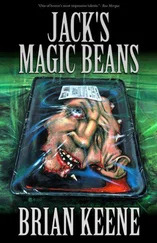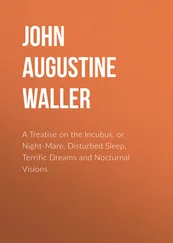It happened that after the war I found myself in this school. It wasn’t an ordinary school. The best proof of this was the fact that the rec room, which took up a whole hut, was crammed with musical instruments. You wouldn’t believe what all they had in there. Music school? No, nothing of the sort. But trumpets, flutes, trombones, oboes, bassoons, clarinets, violins, violas, cellos, double basses. There were instruments whose names we only learned from the music teacher, once he was brought in.
There was a saxophone too, an alto. True, it was missing two keys, but you could cover the holes with your fingers and more or less play it.
Some instruments were in even worse shape. Bent, cracked, torn, they had holes from bullets and shrapnel, as if they’d fought in the war too.
But there were also ones that were perfectly fine, or at any rate that all that was needed was to solder something together or fix it back on, or stick on an extra part, or take bits from two or three of them to make one whole one, transfer something from one to another, strings for example, on something else switch out the mouthpiece, and you could play. There were shops there, so you could mess around with little repairs like that.
It turned out some people already knew how to play a little on one instrument or another. But most of them had never touched a musical instrument in their lives. Me for example, all I’d known was uncle’s harmonica. But when the music teacher showed up a short while later, he said right away that he’d make us into a band. Apparently that was the pedagogical task the school had assigned him. Fortunately he soon seemed to forget about it.
In general he didn’t make much of an effort. It was another thing that I don’t know if anyone at all could have made a band out of the ragbag of kids there were at that school. Most of the time he went around half cut, there were days he could barely stand upright. Sometimes he’d fall asleep in class. Or whenever he picked up an instrument to show us how it was played, he’d play and play, often till the end of the lesson.
We also had practice with him in the evenings in the rec room, depending on whether he showed up more or less drunk. If it was more, he’d get all sentimental about one broken instrument or another, ask how someone could have hurt it like that. Barbaric was what it was. An instrument like that suffered the way a person does. Every bullet hole, every snapped string, every chipped neck, was a wound. According to him some of the instruments had ended up in the school by mistake, they ought to have been in a museum.
But it may have been that they were brought from a museum, that they needed to be moved somewhere and it happened to be to our school. I’m sure you remember, back then everything was transported here and there and everywhere, back and forth. Not just instruments. Machinery, animals, people. Furniture, bedding, pots and pans. Sometimes we’d go down to the station and there’d be one goods train after another standing there, each one of them stuffed with all kinds of belongings. You rarely saw a passenger train, just freight trains one after another. Maybe it’s like that after every war, that everything goes back to its place, even though the war alters places too, swaps them around, while some places there’s no point looking for even, they don’t exist anymore.
One time a truck arrived and brought a harp, a harpsichord and a viola da gamba. We didn’t know what they were and we asked him, but he started crying. The harp was missing half its strings, the harpsichord only had a few keys left, and the viola da gamba looked like someone had used it for target practice. From that moment on we took a liking to him. Him alone of all the teachers. Even though like I said, usually he was tipsy or straight up drunk.
He always carried a kind of flat bottle. Here in his breast pocket. It never bothered him that he was the teacher, he’d pull it out and take a swig in front of us.
“Sorry boys, I just have to.”
All the teachers behaved like they were military, and they treated us like recruits. Aside from him they all wore uniforms without stars but with epaulettes and crossed military straps. Word had it they even carried pistols in their pockets. The students also had uniforms that were a sort of black or dark blue color, and they wore hobnailed boots, side caps, and on the side caps metal insignia with a kind of rising sun in a semicircle of rays. Which, as was explained to us in homeroom, was meant to symbolize a better new world that was rising. And that that new world was ahead of us. We just had to learn to have faith, unbreakable faith. And it was for learning faith that we were here in school.
Aside from that, we learned trades. Bricklayer, plasterer, joiner, roofer, metalworker, millworker, welder, mechanic, electrician, a few others. Everyone could choose what trade they wanted to learn. Though not entirely. In the end it came down to how many places the school had for one trade or another.
We lived in barracks, and we were divided into teams. Each team had a team leader, the oldest and strongest boy, and above him every team had its own homeroom teacher.
To begin with I learned the trumpet a bit and for a year I played reveille in the morning. After reveille we’d get washed and have breakfast — black ersatz coffee, bread and jam. Then it was assembly on the parade ground, standing in line two deep, roll call, orders. Usually a couple of kids getting reported for some wrongdoing. Then off to class, each team to a different room, or to shop. And twice a week we’d be marched off to do physical labor, carrying shovels and pickaxes, singing.
What labor did we do? There was no lack of work to be done. Especially because for several months the front had been situated in the area where the school was. We filled in bunkers and trenches and bomb craters, some of them you can’t imagine how huge. You’ve seen that kind of thing? There you go. We patched roads, at least roughly, so cars could drive there. Or we broke rocks to build more roads. We demolished ruined buildings that were in danger of collapsing. Or bridges over rivers if they were beyond being repaired. We fixed embankments that had been crushed by tanks or dug up to allow trucks and artillery through. The way it always is after a war. Come rain or shine, because as they told us, we needed to be toughened up. In winter too, it goes without saying. We cleared snow from the roads and the railroad tracks.
As far as lessons were concerned, some of the boys had attended underground school during the war. Some had even completed seventh grade. But most couldn’t either read or write. Some, even if they’d been able to once, they’d forgotten because of the war. War can make you forget lots of things, not just reading and writing. You can forget yourself. And that’s what had happened to them. They didn’t know where they were from, what they were called, where they were born, when. They were all just this postwar hodgepodge, like I said, with no homes, no fathers, mothers, and a good few with unclean consciences. Plus we were all different ages, older, younger, including some really young children. Though truth be told, no one was a child anymore. You couldn’t be a child however much you longed for your childhood.
So we weren’t entirely a school, we were part school, part youthful army. We were held accountable the way you are in the army, and for the slightest offense we’d have to run to some tree way the hell off somewhere, often carrying weights. Or wade into water up to our neck, in full uniform and boots. Or do x number of pushups. Or if it was something worse, lockup with nothing but bread and water. You’d have to report to the teachers, and you didn’t say please sir to them like in school, instead you addressed them as citizen teacher, and the commandant was citizen commandant. So we didn’t exactly feel like school students. Not many people even wanted to be promoted from one class to another. Though getting promoted didn’t make much difference. The people in charge reduced us all to the same level, they probably thought the war had set all of us back to the beginning, so they taught us from the beginning.
Читать дальше












